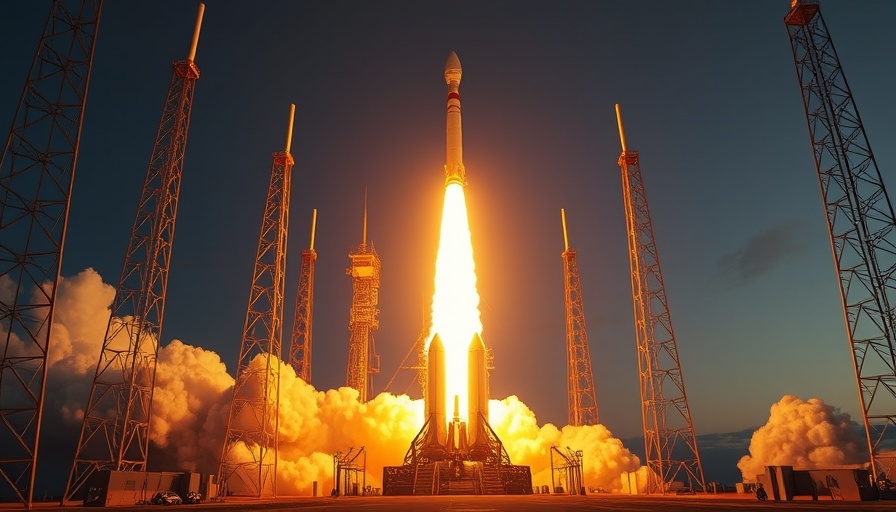
The Dawn of a New Era in National Security Launches
In a significant move for U.S. national security operations, the U.S. Space Force has officially certified United Launch Alliance's (ULA) Vulcan Centaur rocket to undertake missions critical to the nation's space reliability. This marks a pivotal evolution in the landscape of space launches, as Vulcan Centaur joins SpaceX as one of the only two providers approved for National Security Space Launch (NSSL) missions.
Why Vulcan Centaur Matters for National Security
According to Brig. Gen. Kristin Panzenhagen, the Space Force's program executive officer, "Assured access to space is a core function of the Space Force and a critical element of national security." With Vulcan Centaur now in operation, the U.S. can ensure a more flexible and resilient launch capability which is paramount to protecting vital space systems serving military and intelligence purposes.
A Robust Certification Process
The journey to certification was not merely procedural; it necessitated a thorough review consisting of 52 certification criteria and more than 180 discrete tasks. This extensive process ensured that Vulcan Centaur not only meets but exceeds the standards for reliability and safety demanded by the Space Force. ULA's president, Tory Bruno, emphasized the success of Vulcan's recent tests, which were crucial evaluations leading to this certification.
History and Evolution of ULA’s Rocket Program
Vulcan Centaur emerges as a successor to ULA's earlier Atlas V rocket, which has adeptly served the U.S. government for nearly two decades. The Atlas V performed its last NSSL mission in July 2023 and is expected to retire soon as Vulcan takes the reins. In its nascent stage, Vulcan has already made headlines with successful test flights and demonstrated its high readiness despite earlier technical challenges, such as an engine nozzle failure during a significant test flight.
Looking Forward: The Future of Space Launch Operations
The certification of the Vulcan Centaur rocket signifies more than just a step forward for ULA; it represents a broader enhancement of the United States' capabilities in space exploration and defense. With the growing reliance on satellite technologies for communication, intelligence, and military operations, ensuring reliable launch platforms remains essential. Looking ahead, the Space Force anticipates utilizing Vulcan for vital missions that support both national security and collaboration with commercial partners, highlighting a future where government and private enterprises work closely in the space sector.
The U.S. Space Force's approval of the Vulcan Centaur rocket underscores an important shift in maintaining national security in an increasingly complex global environment. As we continue to advance our technological leverage in space, it remains crucial to monitor developments within both the public and private aerospace sectors as they evolve.
Stay informed about the latest advancements in space and technology by joining our community of readers passionate about innovation and exploration.
 Add Row
Add Row  Add
Add 




Write A Comment